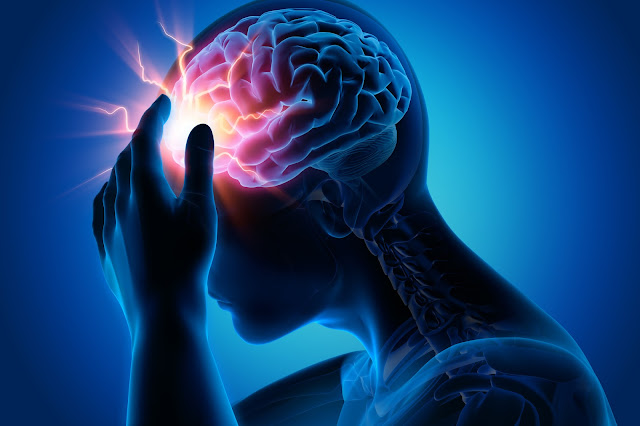A migraine is a disorder that causes headaches accompanied by nausea, vomiting, and sensitivity to light and sound. It can last hours to days and cause pain that interferes with your daily activities.
The exact cause of migraines is still unknown, but they’re thought to result from abnormal brain activity. It can be triggered by different factors, such as stress, certain foods, hormonal changes, and even bright lights.
Migraines can be a real pain, rendering even the simplest tasks seemingly impossible. Unfortunately, there’s currently no cure for migraines, but there are ways to help prevent or relieve the symptoms.
While some people resort to medication to quell the pain, others prefer more natural remedies. The following five methods can offer relief without the need for drugs. They’ve been explored by experts and validated by countless migraine sufferers who’ve found comfort in their use.
1. Magnesium Cream
Magnesium plays a vital role in many bodily functions, including nerve transmission and muscle contraction. Interestingly, studies have found that many people who suffer from migraines have low magnesium levels.
Applying magnesium as a cream might provide an effective method to boost magnesium levels. Since it bypasses the digestive system and gets absorbed directly into the body, it could provide a more immediate effect.
There’s a theory that applying magnesium cream to the temples and neck may help reduce migraine frequency and intensity. It’s believed to improve muscle relaxation and minimize the production of pain-transmitting chemicals in the brain.
However, further research is needed to understand the effectiveness of magnesium cream for migraines.
2. Stay Hydrated
When the body is dehydrated, the lack of fluid can cause the brain to contract or shrink temporarily. It can cause headaches similar to migraines.
So, how does staying hydrated specifically aid in migraine relief? Adequate hydration helps maintain normal brain function and healthy levels of hormones and neurotransmitters. The brain’s function can suffer when dehydrated, potentially triggering a migraine.
One study investigated the effect of hydration on a migraine in a group of 50 patients. Experts found those more hydrated were less likely to experience a migraine.
3. Practice Relaxation Techniques
Stress is one of the most common triggers of migraines, making relaxation techniques a potentially effective natural remedy. These help manage stress and decrease its harmful effects, including the onset of migraines.
Below are some relaxation techniques that can help prevent and relieve migraines:
- Deep Breathing: It’s a practice of taking slow, deep breaths, filling the lungs, and then exhaling slowly. It signals the brain to calm down and relax, which can deter the onset of a migraine.
- Progressive Muscle Relaxation: It involves tensing and then relaxing each muscle group in the body, starting from your toes to your head. This technique can reduce muscle tension throughout the body, a common contributor to migraines.
While these relaxation techniques offer a non-pharmaceutical approach to migraine relief, their effectiveness may vary and take time to manifest.
4. Maintain A Regular Sleep Schedule
Sleep and migraine headaches share a complex, reciprocal relationship. Too little and too much sleep may trigger intense and excruciating migraines, underlining the importance of a well-regulated sleep schedule in the battle against migraines.
Sleep deprivation may cause inflammation in the body. Chronic inflammation can worsen pain sensitivity, possibly triggering migraines. Achieving a complete and restful night’s sleep aids your body in managing and reducing inflammation.
In addition, good sleep can influence the production of serotonin and melatonin. Altered levels of these chemicals may increase the risk of migraines. Maintaining a consistent sleep schedule supports the healthy release of these crucial substances.
Establishing a healthy sleep schedule, creating a sleep-friendly environment, and maintaining good sleep hygiene can go a long way in managing migraines.
5. Employ Cold Compress Therapy
When a migraine strikes, one quick and effective method to relieve the discomfort is applying a cold compress to the area of pain. This technique is often used as a first line of defense against the debilitating pain of migraines and is backed by research and anecdotal evidence.
Cold compress therapy functions fundamentally by numbing the area, which can dull the pain sensation. When applied to the forehead or neck, a cold compress can provide immediate, albeit temporary, relief from migraine pain.
In addition, using a cold compress can also be beneficial as it is a natural, drug-free form of pain reliever. It is a good alternative for those who can’t take certain medications due to allergies or side effects.
Final Words
Dealing with migraines is never easy, but these natural remedies may offer relief. Try one or more of these techniques to see what works best for you. Remember, consistency is crucial. It might take time, but finding a natural remedy that suits your needs could be a game-changer. As with any treatment, consult your doctor before trying any of the methods mentioned above.

